Disclosure: Meeple Mountain received a free copy of this product in exchange for an honest, unbiased review. This review is not intended to be an endorsement.
Mystic Market is a light set collection and price manipulation game with a lovely magical theme. Over the course of the game players will collect such fanciful ingredients as dragon scales, kraken tentacles, and phoenix tears, in order to buy and sell them, or to concoct potions with them. But pay attention, because as each ingredient is sold, it’s value decreases which could tank your next turn. The player with the most money at the end of the game is the most successful potioner.
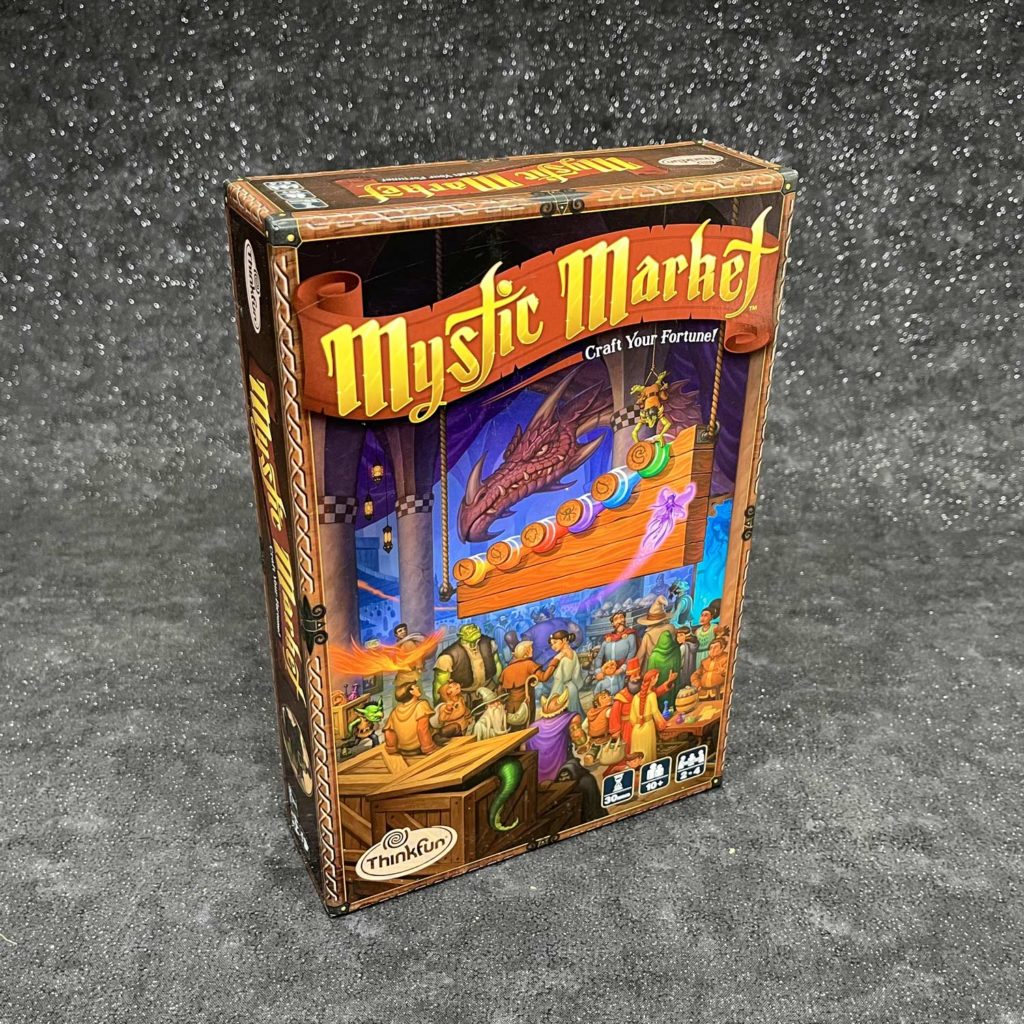
Mystic Market Overview
Setup for Mystic Market is straightforward.
Players each get 5 coins, 4 Ingredient cards, and 1 Reference card. Then lay out 5 ingredient cards face up to form the market.
Mix up the 6 Supply Shift cards, select 3 of them and add them to the deck of ingredient cards. Shuffle well, then set this deck as the draw deck for the market. Shuffle the Potion cards as well.
Set the initial value of each ingredient on the Value Track according to the rules.
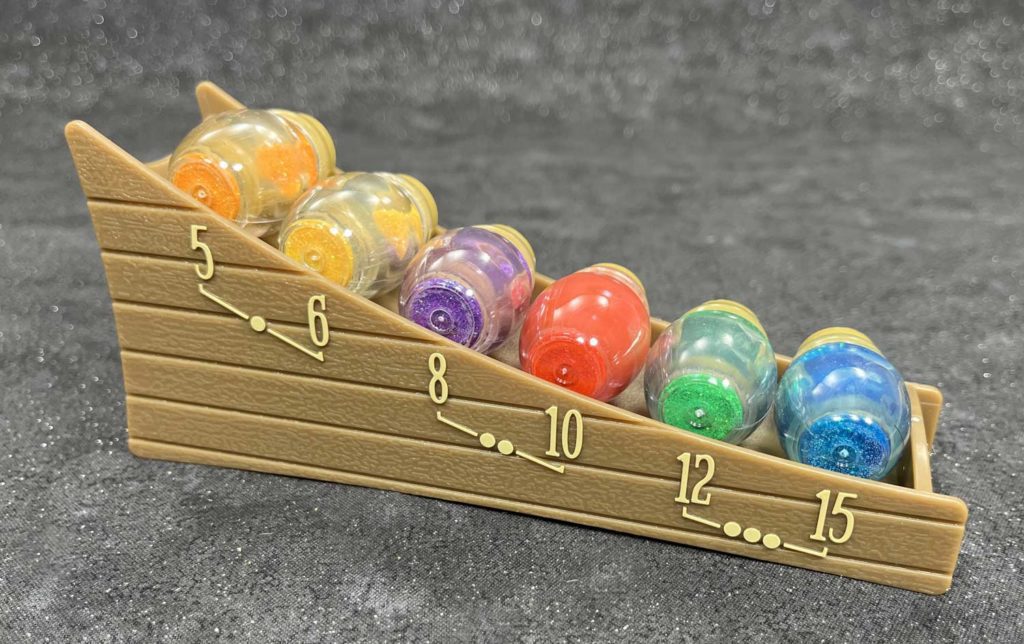
A Turn of Mystic Market
Since the Ingredient cards are at the heart of the game, before we talk about a turn, let’s examine the cards themselves.
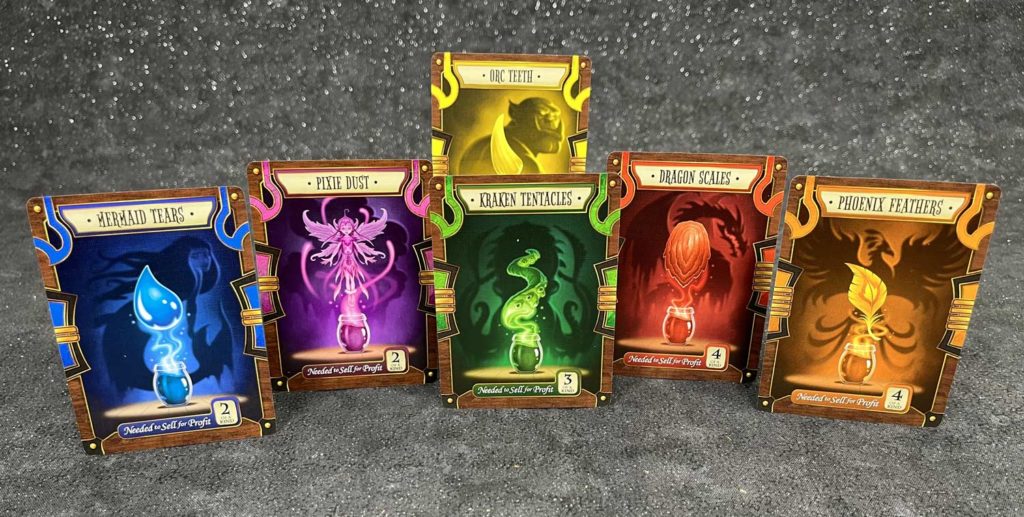
On your turn you can perform one of the following actions.
- Purchase 1 or 2 Ingredient cards from the Market.
-
- The cost of each card is dictated by the dots below the desired Ingredient on the Value Track. Values range from 1-3 coins.
- Swap 1 or 2 Ingredient cards from your hand with the Market.
-
- There is no restriction on what cards may be swapped, and the current value of the swapped cards is irrelevant.
- Sell Ingredient cards
-
- A full set of cards will earn you coins based on the current value of that ingredient (between 5-15). Then update the Value of the sold ingredient (see below)
- A single card will earn a player no coins. Then update the Value of the sold ingredient (see below).
- Update Ingredient Value – after ingredients are sold, the Value track is updated, with the sold ingredient moving to the top of the track, allowing all other ingredients to become more valuable.
- Craft a Potion – This is a bonus action and can be done at any time during your turn. You may craft and use a potion in the same turn, or save a potion for later. When a potion is used, you’ll earn the amount of coins indicated on the potion card.

Mystic Market is played over a number of rounds until the draw pile of ingredients is empty. Each player gets one additional turn, and the winner is the player with the most coins. For a shorter game the rules indicate that you can play until one player reaches 30 coins (although in my experience that isn’t all that much shorter than the regular game).
Mystic Market Final Thoughts
I was first attracted by this game when I saw the Value Track and Ingredient markers. They’re not only visually compelling, but they have the added benefit of making the game easier to understand. There’s a small thrill when you move the vial of Yellow Orc Teeth from the 15 spot to the 5 spot, allowing all the other ingredients to roll downwards…especially if you know that one of your opponents was collecting Orc Teeth—good job, you just tanked their plans.
Since we’re already talking about components, let’s finish the discussion. Production quality for this entire game is high—a consistent comment about ThinkFun titles. The insert is injection molded, the cards are thick, but still easy to shuffle (with vibrant colors), the Value Track is high impact plastic with a nice “old wood” texture, and the Ingredient vials…they’re awesome. Clear plastic with colored sand and a faux stopper at the top. If they would have sprung for actual shapes of the ingredients it would have been amazing. But as it is, it’s still one of the most distinct card games I’ve ever played, component-wise.
But how’s the gameplay? It’s solid!
Since the value of ingredients in the Market is always shifting, you constantly have to be thinking ahead. Noelle is collecting purple (Pixie Powder) and it’s currently worth 12, with blue (Mermaid Tears) at 15. Is she going to sell a full set for 12, or will she try to devalue blue by selling a single card, moving purple into the 15 spot? That might work out well for you because you’re collecting yellow (Orc Teeth) and since it’s currently in the 10 spot, it would move into 12.
My only gripe about Mystic Market is that in most of our games the Potion cards never get touched, or if they do, it’s maybe once per player. Since the win condition is money, you’re likely going to make more cash by collecting and selling ingredient cards than by crafting a potion that might only earn you 4 coins. Sure the Potions have special abilities, but unless the face up Potions meet your needs, there’s no reason to go in that direction. Perhaps if there was a way to spend an Ingredient card to wipe the Potion market, that might be helpful.
There’s some fun mental gymnastics to be had with Mystic Market, and it’s very satisfying to pull off a good move when your opponent least expects it. I’d easily recommend this to any group with players at least 8 or 9 years old. It plays equally well as a family game, as it would a “between game”, sandwiched by heavier or more complex titles (a filler game if you will).
Alakazam!


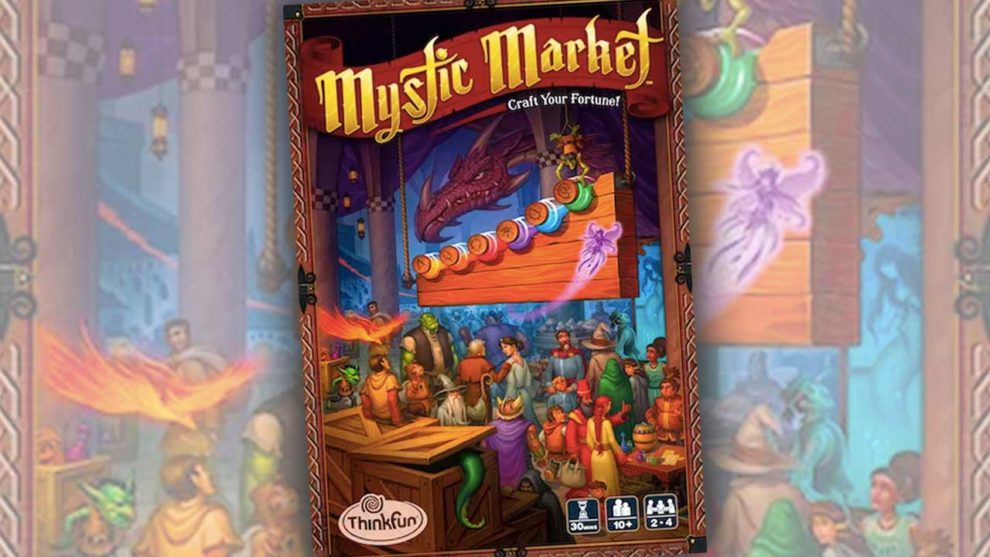

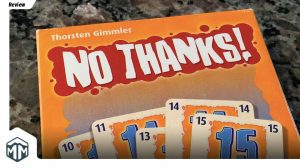


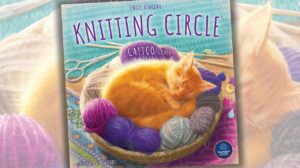




Add Comment